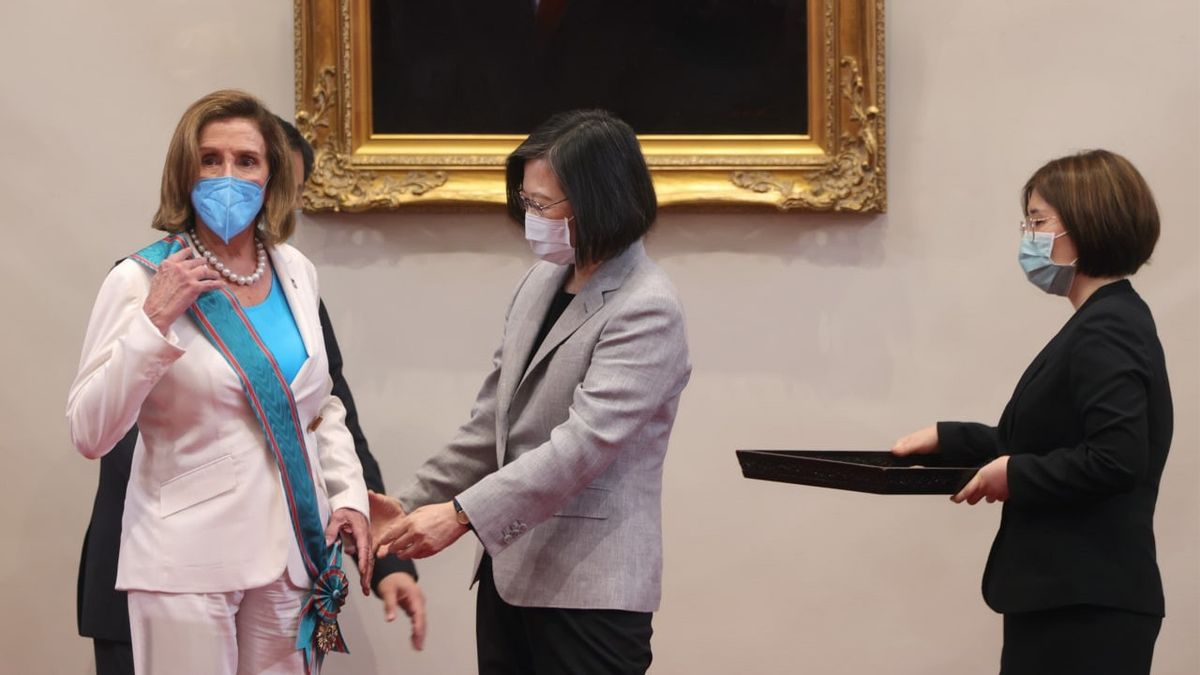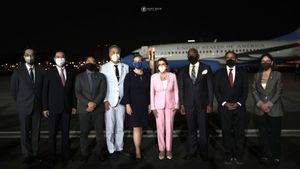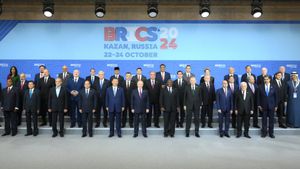JAKARTA - Taiwan authorities have pledged to increase security against possible interference by foreign forces, including cyber attacks, as tensions with China escalate following a visit by US House of Representatives Speaker Nancy Pelosi.
China showed its anger over the highest-level US visit in 25 years to the island Beijing claims as its own with an explosion of military activity in the surrounding waters, summoning the US ambassador in Beijing and halting some agricultural imports from Taiwan.
US House Speaker Nancy Pelosi arrived in Taiwan on Tuesday evening and returned home on Wednesday, having pledged solidarity with the island and praising its democracy.
Taiwan Cabinet spokesman Lo Ping-cheng said in a press briefing that the authorities had increased security at key infrastructure, including power plants and airports, and raised the level of cybersecurity alert in all government offices.
Lo said Taiwan anticipates being targeted in the coming days for an escalation of "psychological warfare", which describes an influence campaign including misinformation to influence public opinion.
"We are seeing a psychological war that is stronger than ever, and it will escalate in the coming days," Lo said.
Lo urged the press in Taiwan not to act as a "propaganda tool" for Beijing, saying they should be careful when citing Chinese state media reports.
Shortly after Pelosi's arrival on Tuesday evening, Chinese state media reported Chinese Su-35 fighter jets crossing the sensitive Taiwan Strait that separates the island from China, before Taiwan's military dismissed the reports as false.
Meanwhile, Digital Minister Audrey Tang said cyberattacks against Taiwanese government units on Tuesday surpassed 15,000 gigabits, 23 times higher than the previous daily record.
Several government websites including the presidential office have been targeted by cyberattacks abroad, some of which authorities say were launched by China and Russia.
Earlier, officials said China's planned military drills, from Thursday afternoon to noon on Sunday, would affect all 18 international flight routes near the capital Taipei.
VOIR éGALEMENT:
They said the impact, however, would be limited, with a slight increase in travel times due to aircraft flying alternate routes.
Taiwanese officials have repeatedly warned of what they see as a Chinese campaign to undermine popular support for the government.
China has never renounced the use of force to bring Taiwan under its control, which it says is the most important issue in its relations with the United States. Taiwan rejects China's claim to sovereignty and vows to defend itself.
The English, Chinese, Japanese, Arabic, and French versions are automatically generated by the AI. So there may still be inaccuracies in translating, please always see Indonesian as our main language. (system supported by DigitalSiber.id)


















